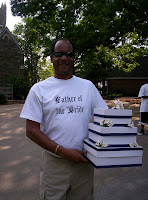The DSM-IV-TR describes ADHD as "a persistent pattern of inattention and/or hyperactivity-impulsivity" that is displayed more frequently, and is more severe than what is considered normal for kids their age. "It must have been present before age 7," however many individuals are not diagnosed until later. "It must be present in at least two settings," and must clearly interfere with their functioning in those settings. These individuals usually don't pay close attention to things, are messy, don't finish tasks, are sometimes careless, and may appear to be daydreaming. They are usually impulsive (though don't always show hyperactivity; this is called ADD).
Family's typically have to adjust their life style to accommodate the member with ADHD/ADD. Unfortunately, often anger and defiance accompany this condition. The home of a person with ADHD can be very stressful for all. It doesn't have to be. The changes that you make in response to your child's needs should be oriented towards helping him to control the interfering behaviors, as well as facilitating his strengths. So, for example, don't call her from the kitchen to save a few steps, but go to where she is, look her in the eyes and give the direction. Flexibility is helpful. Controlling your own anger, and giving lots of positive feedback (when appropriate), and clearly defined consequences given consistently. Help them label, understand, and appropriately express their emotions (all of them). And never give up on your optimism, and confidence that your child can and will be successful and happy as an adult, having learned to cope with whatever obstacles confront them.
